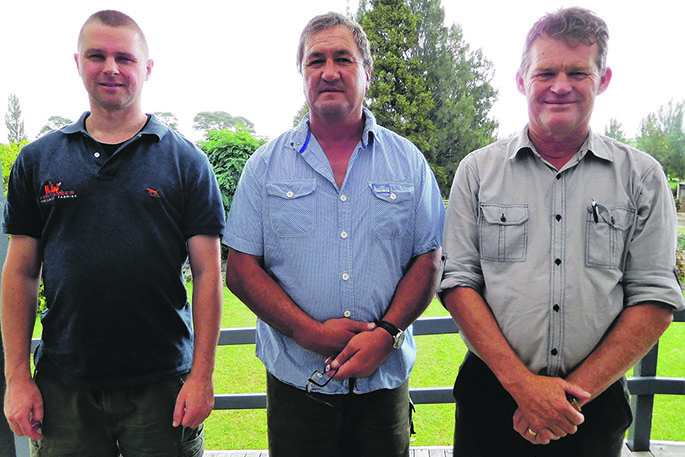Waikato’s Te Raparahi Trust is in the enviable position of yielding some of the country’s best milk, following a three-year programme to balance the soil biology on its four dairy farms.
Good management and the correction of the biology means the farms now have a balanced ‘BioCircle’, a phrase coined by Forward Farming biological consultant David Law.
“Every farm is a BioCircle,” says David. “Every key area flows in and out of other key areas. What’s in the soil goes into the grass. What’s in the grass goes into the cow. What’s in the cow goes into the effluent pond. What’s in the effluent pond goes into the soil.”
Te Raparahi Trust chairman Phillip Samuels oversees the trust’s four dairy farms – Te Harore a Kapu, Tokopuhi, Materoa and Papatangi – comprising 1350 cows over 480ha in Tokoroa and South Waikato.
Since enlisting the services of David Law and Kiwi Fertiliser soil fertility advisor Alastair Dagg, alongside AgFirst farm consultant Mark Macintosh, Materoa has achieved number one ranking for milk quality at supplier Miraka, and number three for Somatic Cell Count. Tokopui and Papatangi are also ranked seventh and eighth respectively for SCC.
“I think we are in a good position for the future,” says Phillip. “We have long-term planning at the forefront of our minds in everything we do.”
Five years ago, the farms were in a very different state: animal health issues were rife, and the effluent pond at Tokopuhi was so heavily crusted farm staff could walk on it.
Phillip was also uneasy at how much nitrogen was being applied. “When we started, we were chucking on 300-375 units of nitrogen as Urea, at the recommendation of our fertiliser company,” says Phillip.
“When I stood back I thought: ‘This isn’t right’. I wasn’t happy with the way we were headed.”
David applied Slurry Bugs – aerobic, or ‘good’ bacteria – to the effluent pond, which cleared the crust.
“The biology was working,” says Phillip. “But the crust eventually returned, and we realised we needed to take a whole-farm approach.”
Alastair says it took two-three years to correct the soil balance, a large part of which was applying lime and dolomite to correct the soil’s calcium/magnesium balance.
Alistair now applies potassium sulphate, sulphur, boron, ammonium sulphate, cobalt, selenium, copper and zinc, in addition to compost and humates, to maintain soil balance.
The farm now boasts a balanced BioCircle: the soil environment enables the biological inhabitants to function properly, converting and transporting nutrients and suppressing disease-causing organisms; grass is more nutrient-rich, tasting sweeter to cows and encouraging better feeding; cows are healthier, with more efficient digestion and therefore greater milk production; and effluent ponds are dominated with good bacteria, digesting solids and preventing crust from forming.
The farms’ animal health issues have also been resolved, and N application has been reduced to around 100 units.
“Our goal is to get down to 38-40 units; it’s a big target to achieve but I think we can do it,” says Phillip.
He says taking a holistic approach is non-negotiable for the trust. “Production has never been up there for us. Reducing costs, making our system more efficient, and leaving a legacy for the future is, by correcting the BioCircle and getting the ecosystem working as one big cog.”



0 Comments
Leave a Comment